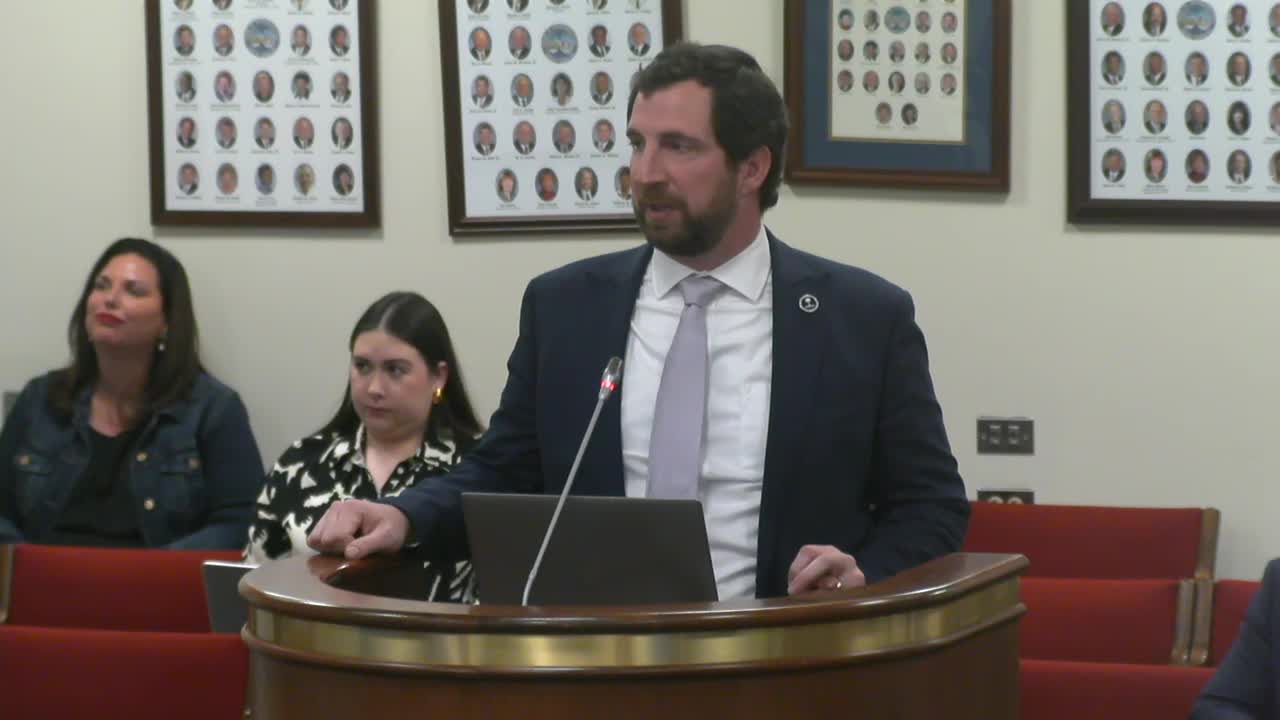State education department seeks funds for teacher pay, math materials and safe‑school infrastructure; outlines cell‑phone policy and literacy goals
Get AI-powered insights, summaries, and transcripts
Subscribe
Summary
The South Carolina Department of Education told the House Education and Public Works Committee on Oct. 12 it is seeking new funding for teacher pay, math materials and school safety while advancing statewide literacy and math initiatives.
The South Carolina Department of Education presented its strategic plan and a multiyear budget request to the House Education and Public Works Committee on Oct. 12, emphasizing literacy, math, career pathways and school safety.
Philip Cease, director of governmental affairs for the State Department of Education, told the committee: “The mission of South Carolina Department of Education is to serve students, support teachers, empower parents, engage the community so that every student graduates prepared to reach their full potential.” He described a “one‑four‑one‑four” strategic plan with a moonshot goal of at least 75% of students at or above grade level by 2030 and linked near‑term objectives to that target.
Key program priorities and funding requests: - Science of Reading / LETRS: The department said the legislature funded nearly $40 million two years ago for professional learning for K‑3 teachers. Cease said roughly 20,000 teachers are in the LETRS pipeline or have completed the training; the department expects full K‑3 coverage by the 2025‑26 school year and offers a stipend for completion. - Palmetto Math Project: Expanded statewide after positive literacy results, the pilot targets underperforming schools with additional resources and supports; the department seeks funding for high‑quality math instructional materials and implementation supports. - Read to Succeed 2 / third‑grade retention: Cease told legislators that under the revised Read to Succeed rules this summer, 16,238 third graders would have been eligible for retention and must be offered interventions such as summer reading camps; the department asked the committee to prepare for implementation and for associated summer programming. - Cell‑phone proviso (“Free to Focus”): The department described an appropriations proviso that directed the State Board of Education to adopt a model cell‑phone policy for local boards; the model defines “access” (viewing, holding or otherwise using a device), applies school‑day enforcement (bell‑to‑bell) and allows local exceptions for IEP/504 needs, first responders and academically justified uses. Cease said adoption of a district plan was required for receipt of state classroom aid under the proviso; the department launched a website with implementation resources. - Budget request highlights: The department requested $200 million to raise starting teacher pay to $50,000 (about a $3,000 increase across pay scales), $20 million recurring and $95 million nonrecurring for high‑quality instructional materials (math and ELA), $13 million for CTE Rural Renaissance, and a $100 million recurring rural infrastructure bank for school construction and safety upgrades (including bulletproof glass and locking systems). The request also included funding to continue the educator stipend program and expand strategic compensation pilots.
Committee discussion: Members asked whether districts or teachers are using artificial intelligence for individualized tutoring and whether the cell‑phone model policy had produced more complaints from parents or teachers. Cease said some districts had innovation grants for AI pilots and that the proviso produced substantial pre‑implementation public comment; afterward, anecdotal feedback from some teachers has been positive and the department asked legislators to allow the policy to run a year to gather data before statutory change.
Why it matters: The department links investments in teacher training, instructional materials and targeted interventions to its 2030 proficiency goal. Members noted the scale of students who would be affected by Read to Succeed retention and asked how districts will manage summer camps and parent communication; the department said it had increased funding for summer reading camps and was expanding teacher training to earlier grades and teacher‑preparation programs.
Ending: Cease urged the committee to consider the department’s request during budget hearings and said materials and proviso language will be shared with legislators for district‑level communication.
